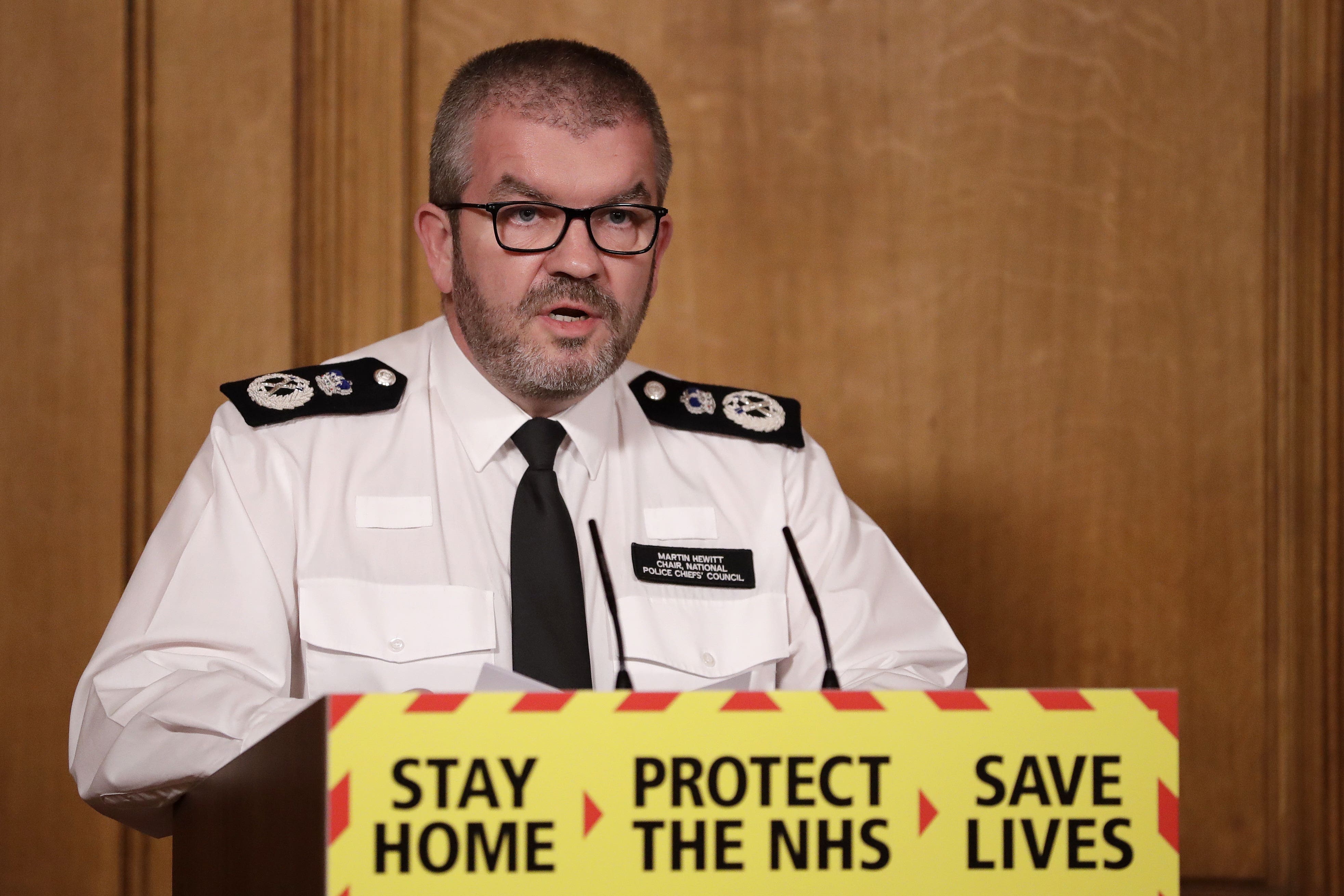Police delayed law after getting Hancock’s Covid legislation with minutes to go
Martin Hewitt, the ex-chairman of the National Police Chiefs’ Council, said he had to tell then-home secretary Dame Priti Patel they needed more time.

Your support helps us to tell the story
From reproductive rights to climate change to Big Tech, The Independent is on the ground when the story is developing. Whether it's investigating the financials of Elon Musk's pro-Trump PAC or producing our latest documentary, 'The A Word', which shines a light on the American women fighting for reproductive rights, we know how important it is to parse out the facts from the messaging.
At such a critical moment in US history, we need reporters on the ground. Your donation allows us to keep sending journalists to speak to both sides of the story.
The Independent is trusted by Americans across the entire political spectrum. And unlike many other quality news outlets, we choose not to lock Americans out of our reporting and analysis with paywalls. We believe quality journalism should be available to everyone, paid for by those who can afford it.
Your support makes all the difference.Police had to put off enforcing new coronavirus laws because they only received the legislation signed off by Matt Hancock 16 minutes before it was meant to be enforced, the Covid inquiry has heard.
Martin Hewitt, the former chairman of the National Police Chiefs’ Council, said on Thursday he had to tell then-home secretary Dame Priti Patel officers would need more time to act.
Covid inquiry chairwoman Baroness Heather Hallett criticised some “bad” legislation drawn up during the pandemic in a hearing focusing on the extraordinary powers handed to police.
Mr Hewitt, who co-ordinated the coronavirus response between all of the UK’s forces, also criticised ministers for confusing the situation further during media appearances.
On one night, he said there was regulation intended to come into force at 12.01am but “we received the regulations signed off by the secretary of state for health and social care (Mr Hancock) at 11.45”.
“So we had precisely 16 minutes,” he said, despite briefing documents needing to be drawn up and then translated into Welsh before they could be shared with forces.
“I had a conversation and was very clear with the home secretary at the time (Dame Priti) that we would not be enforcing that regulation on that day and it was going to take us probably … 24/36 hours to actually get to a place where I was confident police officers out there knew what they needed to do.”
More problems would arise at 7am the following morning when ministers were “spinning round” the television and radio studios talking about this, he said.
Mr Hewitt said politicians would on “many occasions” go on to “throw a whole degree of confusion out” by mixing up regulation and laws, so he would have to correct the record.
How on earth one forms a reasonable ground to suggest that somebody has or may be infected with a virus you can’t see seems to me quite a challenge in a practical sense
Dame Priti told the inquiry: “Those regulations were solely the domain of the Department of Health and Social Care, that was the case throughout the pandemic.”
Baroness Hallett criticised legislation giving police the powers to direct people to be tested for Covid-19 and enforce medical directions.
“That’s an extraordinary power to enact, and I shouldn’t criticise our elected representatives but I can’t see the purpose,” she said.
“I see an awful lot of uncertainties, reasonable grounds, whether it’s unpractical, having to have a public health officer. And there are so many reasons why that’s a bad piece of legislation.
“Again I shouldn’t criticise but I am going to.
“It’s something we need to get into whether, or when, we have another pandemic, we have on the books ready to go legislation that’s better than this.”
Mr Hewitt said that the powers were never used but agreed with the chairwoman.
“How on earth one forms a reasonable ground to suggest that somebody has or may be infected with a virus you can’t see seems to me quite a challenge in a practical sense,” he said.
He also told the inquiry how it was “incredibly difficult for even a perfectly law-abiding and committed citizen” to abide by the at times “rapidly” changing laws.
Then with localised tiering rules coming in, he said different regulations “on opposite sides of the same road” made policing more difficult.
Mr Hewitt said people becoming “fed up with the regulations” sapped “away at the morale of the officers who are just trying to do their job in pretty difficult circumstances”.